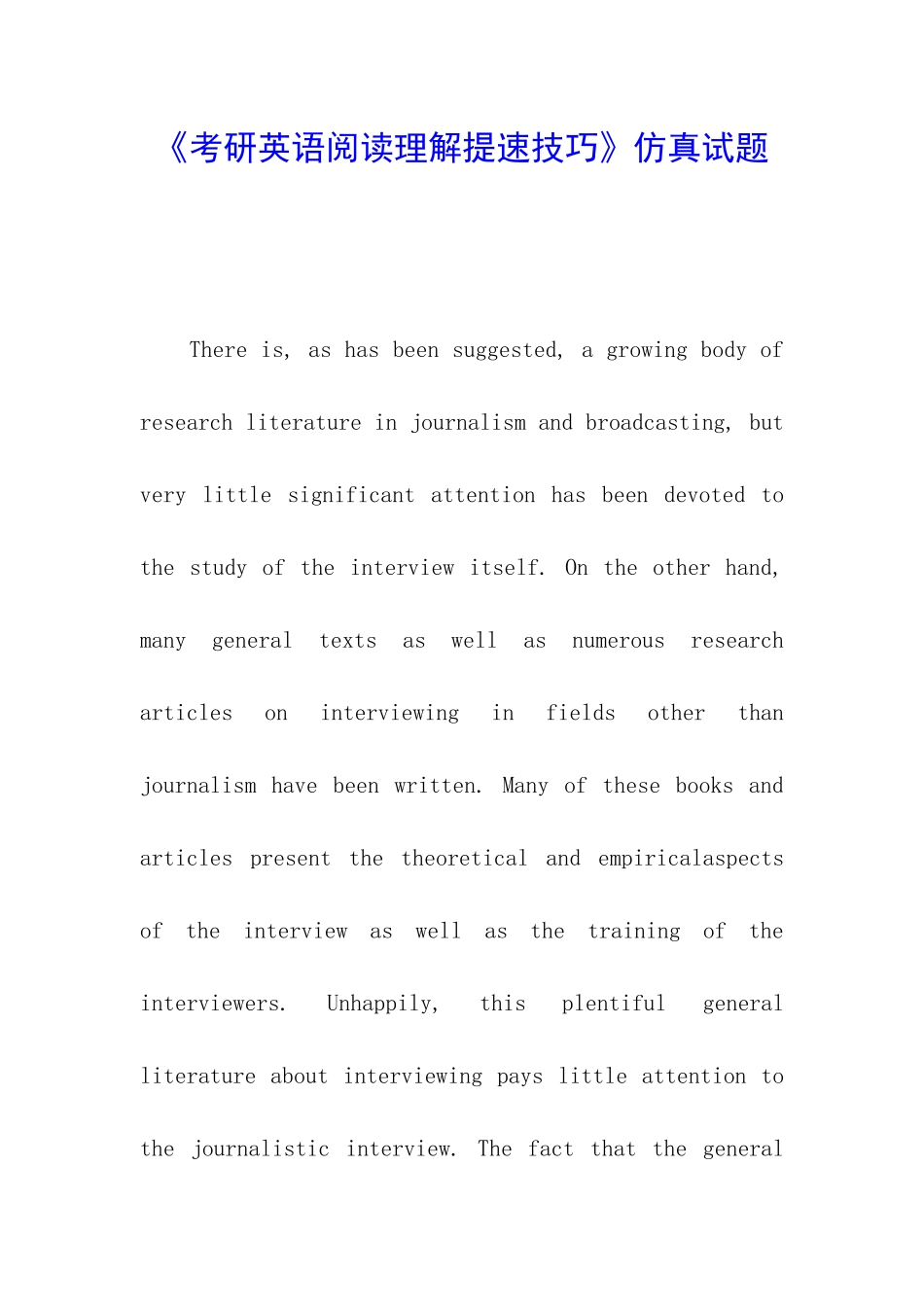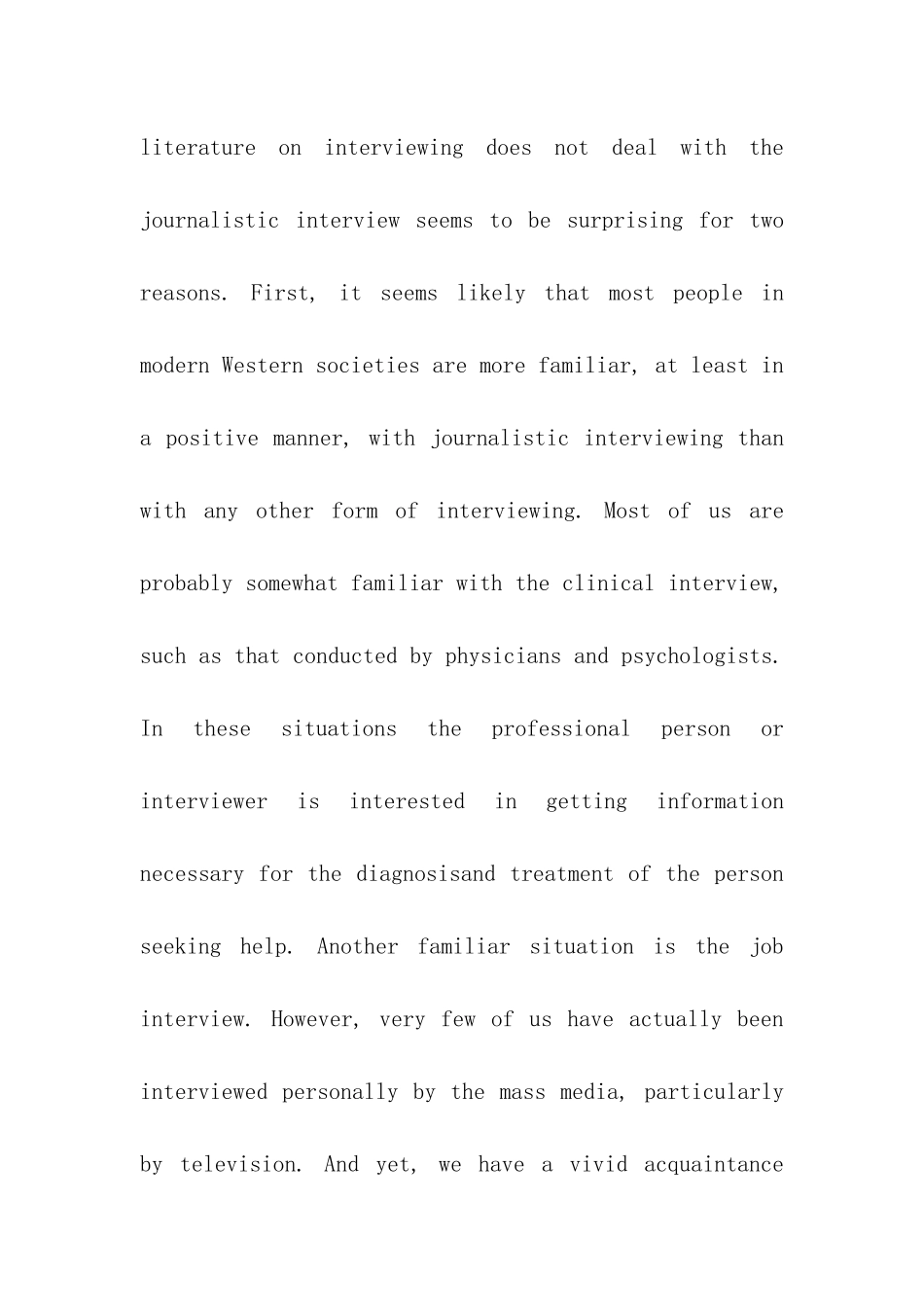《考研英语阅读理解提速技巧》仿真试题 There is, as has been suggested, a growing body of research literature in journalism and broadcasting, but very little significant attention has been devoted to the study of the interview itself. On the other hand, many general texts as well as numerous research articles on interviewing in fields other than journalism have been written. Many of these books and articles present the theoretical and empiricalaspects of the interview as well as the training of the interviewers. Unhappily, this plentiful general literature about interviewing pays little attention to the journalistic interview. The fact that the general literature on interviewing does not deal with the journalistic interview seems to be surprising for two reasons. First, it seems likely that most people in modern Western societies are more familiar, at least in a positive manner, with journalistic interviewing than with any other form of interviewing. Most of us are probably somewhat familiar with the clinical interview, such as that conducted by physicians and psychologists. In these situations the professional person or interviewer is interested in getting information necessary for the diagnosisand treatment of the person seeking help. Another familiar situation is the job interview. However, very few of us have actually been interviewed personally by the mass media, particularly by television. And yet, we have a vivid acquaintance with the journalistic interview by virtue of our roles as readers, listeners, and viewers. Even so, true understanding of the journalistic interview, especially television interviews, requires thoughtful analysis and even study, as this book indicates.


